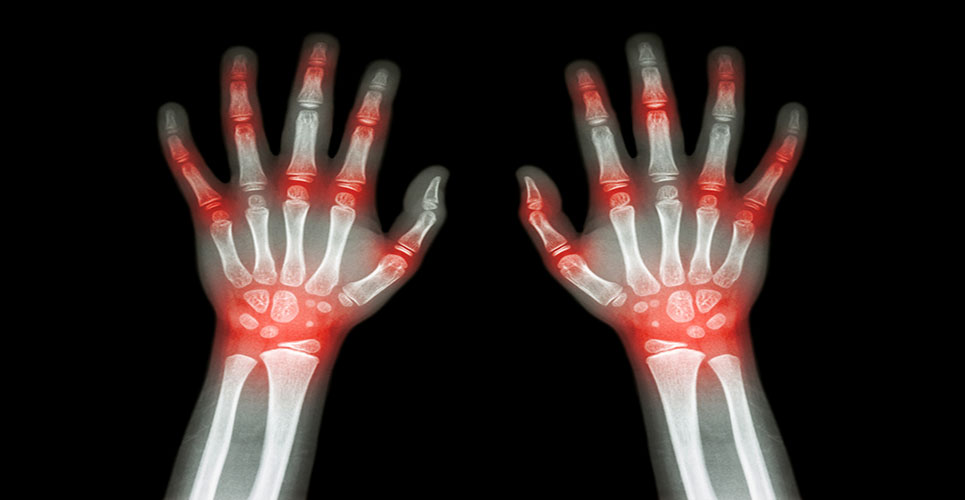Janssen-Cilag International announced positive efficacy and safety results from a Phase 2 study investigating guselkumab, an anti-interleukin (IL)-23 monoclonal antibody administered by subcutaneous injection, for the treatment of active psoriatic arthritis.
Janssen-Cilag International announced positive efficacy and safety results from a Phase 2 study investigating guselkumab, an anti-interleukin (IL)-23 monoclonal antibody administered by subcutaneous injection, for the treatment of active psoriatic arthritis.
According to findings presented at the 2016 American College of Rheumatology (ACR) Annual Meeting, 58% of patients receiving guselkumab achieved at least a 20% improvement in signs and symptoms of disease (ACR 20) at week 24, the study’s primary endpoint, compared with 18.4% of patients receiving placebo (P< 0.001).1
Data from the trial also showed statistically significant improvements in all secondary endpoints including physical function, psoriatic skin lesions and other health related outcomes, compared with patients receiving placebo.1 The guselkumab Phase 2 results in active psoriatic arthritis follow positive Phase 3 study results in moderate to severe plaque psoriasis recently presented at the European Academy of Dermatology and Venereology Congress in Vienna.
“Guselkumab isone of a new class of biologic therapies which target the protein interleukin (IL)-23, and the Phase 2results arepromising asthey demonstrate asignificantimprovementin thetreatmentofactive psoriatic arthritis,”said Atul Deodhar, MD, MRCP, FACP, FACR, Professor of Medicine, Oregon Health & Science University and lead study author. * “It’s encouraging to see how well patients responded to guselkumab in this study with respect to improvements in diseasesigns andsymptoms, as early as week four, andinother health-related quality of lifeoutcomes, including measures of physical and mental health.”

Patients treated with guselkumab had significantly greater improvements in enthesitis and dactylitis and in health-related quality of life as measured by SF-36 physical component summary (SF36-PCS) scores and mental component summary (SF36-MCS) scores compared with patients treated with placebo at week 24.
In addition, a greater percentage of patients in the guselkumab group achieved MDA (minimal disease activity) compared with the placebo group at week 24 (23% versus 2%, respectively, [P= 0.001]). MDA for psoriatic arthritis is a composite measure encompassing clinically important aspects of the disease, including arthritis, psoriasis, enthesitis, pain, patient-assessed global disease activity, and physical function.1
“Theefficacy and safetyresults from this Phase 2 study show the potential of guselkumab in the treatment of active psoriatic arthritis,” said Newman Yielding MD, Head of Immunology Development, Janssen. “Weplanto advance guselkumab into a Phase 3 psoriatic arthritis development programme next year to further characterise this novel monoclonal antibody’s profile in the treatment of this complex inflammatory disease.”
References
1. Deodhar A., et al. Efficacy and safety results of guselkumab, an anti-IL23 monoclonal antibody, in patients with active psoriatic arthritis over 24 weeks: a Phase 2a, randomized, double-blind, placebo-controlled study. Annual Meeting of the American College of Rheumatology/Association for Rheumatology Health Professionals Meeting (ACR/ARHP 2016). Abstract number: 4L. Date of first publication: 19 October 2016
*Compensated as a steering committee member.
